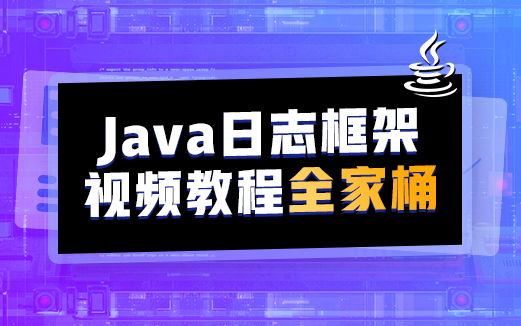更新時(shí)間:2022-08-30 10:30:55 來源:動(dòng)力節(jié)點(diǎn) 瀏覽2658次
成員變量:定義在一個(gè)Java類中,屬于一個(gè)類;可以通過public、private、protected、static進(jìn)行修改;存儲(chǔ)在堆中;新對(duì)象必須在被靜態(tài)修改之前使用;可以調(diào)用當(dāng)前類的所有方法;如果類有子類,也可以調(diào)用子類;并且不能分配。如果沒有指定原始數(shù)據(jù)類型返回相應(yīng)的值,則非原始數(shù)據(jù)類型返回 null。
定義:
public class Test{
public int num;
}
1.如果只定義了一個(gè)成員變量沒有賦值,編譯器會(huì)自動(dòng)添加相應(yīng)的默認(rèn)值。如:
public class Test{
//Basic data types
private boolean flag; //Default value: false
private int _int; //Default value: 0
private byte _byte; //Default value: 0
private char _char; //Default value: '0000', but when printed in Eclipse, it will be the blank character "box", because the code of the blank character is 0x20, and the control character below 0x20 is invisible.
private short _short; //Default value: 0
private float _float; //Default value: 0.0
private long _long; //Default value: 0
private double _double; //Default value: 0.0
//Reference type defaults to null
private String string;
}
2. 直接賦值
public class Test {
private int num = 1;
private String name = "xiaomin";
public Person person = new Person();
}
3. 按方法初始化
public class Test{
private int i = f();
private int j = g(i);
private int f() {
return 10;
}
private int g(int i){
return i*2
}
}
但是編譯器在初始化對(duì)象的時(shí)候是按順序執(zhí)行的,所以不能通過下面的方式進(jìn)行初始化:
public class Test{
private int j = g(i);
private int i = f();
private int f() {
return 10;
}
private int g(int i){
return i*2
}
}
4.通過構(gòu)造函數(shù)初始化
public class Test{
int num ;
public Test(){
num = 10;
}
}
在進(jìn)入構(gòu)造函數(shù)之前,編譯器默認(rèn)初始化num為0,進(jìn)入構(gòu)造函數(shù)后賦值為10。
初始化順序:
編譯類時(shí),首先初始化成員變量,成員變量的初始化順序由定義成員變量的順序決定。
package com.extendstest;
public class OrderOfInitialization {
public static void main(String[] args) {
Card card = new Card();
card.f();
}
}
class Tag {
Tag(int num) {
System.out.println("Tag" + num);
}
}
class Card {
Tag tag1 = new Tag(1); //Define tag1 variable
Card() {
System.out.println("Card()");
tag3 = new Tag(33); //tag3 is reinitialized
}
Tag tag2 = new Tag(2); //Define tag2 variables
void f() {
System.out.println("f()");
}
Tag tag3 = new Tag(3); //Define tag3 variables
}
在 main 方法中,創(chuàng)建了一個(gè)卡片對(duì)象。編譯器編譯 Card 類時(shí),成員變量 tag1、tag2、tag3 在構(gòu)造函數(shù) Card() 之前初始化。因此,上述代碼的輸出如下:
Tag1
Tag2
Tag3
Card()
Tag33
f()
靜態(tài)變量的初始化順序:靜態(tài)成員變量?jī)?yōu)先于非靜態(tài)成員變量。
public class StaticInitialization {
public static void main(String[] args) {
System.out.println("Creating new Cupboard() in main");
new Cupboard();
System.out.println("Creating new Cupboard() in main");
new Cupboard();
t2.f2(1);
t3.f3(1);
}
static Table t2 = new Table();
static Cupboard t3 = new Cupboard();
}
class Bowl{
Bowl(int i){
System.out.println("Bowl"+i);
}
void f(int i){
System.out.println("f"+i);
}
}
class Table{
static Bowl b1 = new Bowl(1);
Table(){
System.out.println("Table()");
b2.f(1);
}
void f2(int i){
System.out.println("f2("+i+")");
}
static Bowl b2 = new Bowl(2);
}
class Cupboard{
Bowl b3 = new Bowl(3);
static Bowl b4 = new Bowl(4);
Cupboard(){
System.out.println("Cupboard()");
b4.f(2);
}
void f3(int i){
System.out.println("f3("+i+")");
}
static Bowl b5 = new Bowl(5);
}
因?yàn)殪o態(tài)初始化只在Class對(duì)象第一次創(chuàng)建時(shí)發(fā)生一次,所以上面的代碼執(zhí)行如下:
Bowl1
Bowl2
Table()
f1
Bowl4
Bowl5
Bowl3
Cupboard()
f2
Creating new Cupboard() in main
Bowl3
Cupboard()
f2
Creating new Cupboard() in main
Bowl3
Cupboard()
f2
f2(1)
f3(1)
還有以下靜態(tài)塊初始化方法:
class Cup{
Cup(int i){
System.out.println("Cup("+i+")");
}
void f(int i){
System.out.println("f("+i+")");
}
}
class Cups{
static Cup c1;
static Cup c2;
static { //Static block initialization
c1 = new Cup(1);
c2 = new Cup(2);
}
Cups(){
System.out.println("Cups()");
}
}
public class StaticInitialization {
public static void main(String[] args) {
System.out.println("Inside main()");
Cups.c1.f(99);
}
static Cups x = new Cups();
static Cups y = new Cups();
}
實(shí)施結(jié)果:
Cup(1)
Cup(2)
Cups()
Cups()
Inside main()
f(99)
另一個(gè)非靜態(tài)實(shí)例初始化,沒有 static 關(guān)鍵字:
package com.extendstest;
class Mug{
Mug(int i){
System.out.println("Mug("+i+")");
}
void f(int i ){
System.out.println("f("+i+")");
}
}
public class Mugs {
Mug c1;
Mug c2;
{ //Non-static initialization, which is called many times when an object is created
c1 = new Mug(1);
c2 = new Mug(2);
System.out.println("c1&&c2inin....");
}
Mugs(){
System.out.println("Mugs()");
}
public static void main(String[] args) {
System.out.println("inin..main");
Mugs x = new Mugs();
Mugs y = new Mugs();
}
}
實(shí)施結(jié)果:
inin..main
Mug(1)
Mug(2)
c1&&c2inin....
Mugs()
Mug(1)
Mug(2)
c1&&c2inin....
Mugs()
相關(guān)閱讀
 Java實(shí)驗(yàn)班
Java實(shí)驗(yàn)班
0基礎(chǔ) 0學(xué)費(fèi) 15天面授
 Java就業(yè)班
Java就業(yè)班
有基礎(chǔ) 直達(dá)就業(yè)
 Java夜校直播班
Java夜校直播班
業(yè)余時(shí)間 高薪轉(zhuǎn)行
 Java在職加薪班
Java在職加薪班
工作1~3年,加薪神器
 Java架構(gòu)師班
Java架構(gòu)師班
工作3~5年,晉升架構(gòu)
提交申請(qǐng)后,顧問老師會(huì)電話與您溝通安排學(xué)習(xí)



初級(jí) 202925

初級(jí) 203221

初級(jí) 202629

初級(jí) 203743